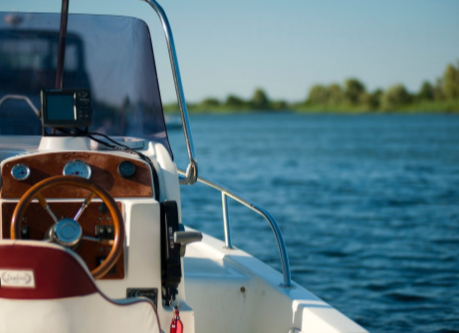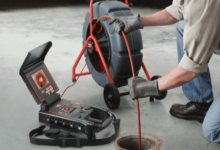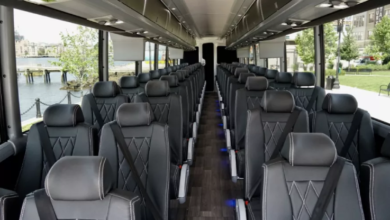INDOOR VS. OUTDOOR STORAGE: WHAT’S RIGHT FOR YOUR BOAT OR RV?

The type of storage you select for your boat or RV is important. It determines both its safety and the associated cost. Indoor and outdoor options have their advantages and downsides. So, the most appropriate decision usually depends on:
- How much you can afford
- Your location
- The kind of security you require.
We will discuss each option below to help you decide.
Indoor storage: Best protection but more expensive.
Indoor boat and RV storage can be in a large garage, warehouse, or any other closed space. It is the most secure against the elements and sunlight. To many RV and boat owners, that peace of mind is everything. It is well worth the added expense.
Pros
- Your vehicle is protected against harsh climate conditions. So, you don’t have to worry about deterioration.
- Your RV or boat will be free from bird droppings and dust. That makes it easier to get back on the road after storage.
- Most indoor facilities are equipped with cameras and locks. That deters thieves and vandals.
- Some facilities have temperature-controlled storage. This can safeguard delicate materials and interior finishes.
Cons
- Storage indoors is normally the most costly.
- Sometimes, it is challenging to find an indoor parking area that accommodates your RV or boat.
- Not all facilities have 24-hour access. That means you may not access your vehicle on demand.
Indoor RV and boat storage is best where:
- You have a high-value RV or boat
- You live in an area with extreme weather
- You just want to increase the life span of your investment.
Outdoor storage: Low-cost, but unprotected.
This is the most popular option. It is an open lot or specific parking place, usually used by owners with a limited budget, or those who drive their vehicle more often.
Pros
- Outdoor locations prove to be significantly cheaper as compared to indoor locations.
- In most cases, you can drive in and out without planning or waiting for the staff of the facility.
- Uncovered spaces can accommodate bigger vehicles that may not fit indoors.
Cons
- Extreme weather has its effects on exterior finishes. A quality cover can help. But it is not the same as indoor storage.
- Yes, there are gates and cameras at most outdoor facilities. However, your vehicle remains more visible and open to attack.
- You will probably have to clean and inspect your vehicle more often. This is to ensure that there are no signs of weather damage or corrosion.
External storage would be logical if:
- You reside in a moderate climate
- Have a lower budget
- Regularly take out your RV or boat.
The final take
Lastly, the most suitable storage will be based on what is important to you. In case you appreciate high-quality security and do not mind paying a little more, the indoor storage is a good investment. Explore outdoor storage if you can take good care of your vehicle.
Whichever path you take, the most important part of storing your boat or RV is ensuring that it is well prepared before being put in storage to ensure that it is in excellent condition for the next season of your adventures.







